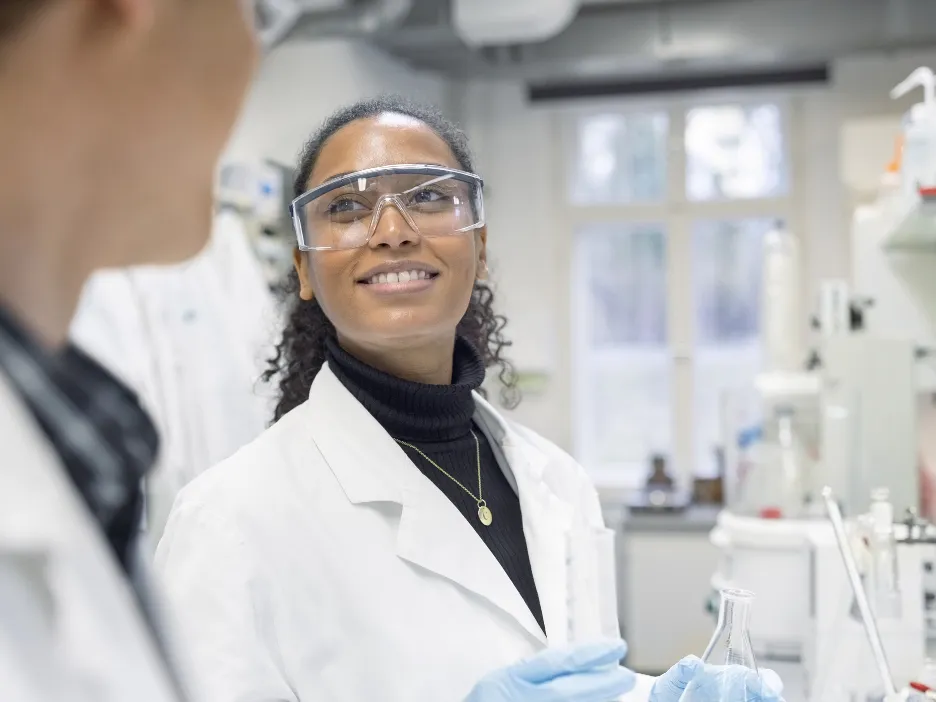Hands-on HPLC and LC-MS
Anthias Consulting Ltd
Find out more Back
This course provides the theory of the Liquid Chromatograph and Mass Spectrometer essential to any delegate, along with the hands-on practical element in the laboratory to practice and re-enforce the theoretical knowledge. These hands-on courses are 50% theory and 50% practical in a lab environment. Delegates will learn within a small group size for focused support.
The course combines the five individual hands-on days covering Liquid Chromatography (HPLC) Theory & Methods, HPLC Maintenance, Liquid Chromatography-Mass Spectrometry Theory and Methods, MS Maintenance and HPLC & LC-MS troubleshooting. Delegates can attend individual days of this course or multiple days to suit their requirements.
Course topics include:
HPLC Theory & Methods
The course begins with an introduction to liquid chromatography covering solvents & buffers (the mobile phase), pumps, isocratic and gradient elution, sample introduction, analytical columns and HPLC detectors with detailed presentations, giving delegates a sound understanding. The associated laboratory practicals present the delegates with an opportunity to implement their knowledge gained, by familiarising themselves with the system; creating methods, changing parameters to see the effects and analysing data.
HPLC Maintenance
This part of the course examines the components of the liquid chromatograph from the maintenance side, covering the autosampler, injector, columns and detectors. Building on prior knowledge of each component, various parts and consumables are identified in addition to understanding the impact they have on the chromatography and the performance of the system. The components are not only examined in isolation but the relationships to each other are also considered. Delegates then perform maintenance tasks on a live LC system, removing and/or dissembling components; replacing or cleaning consumables and parts; reassembling and reinstalling onto the system; finally testing the system and checking system suitability.
LC-MS Theory & Methods
Delegates are introduced to LC-MS by exploring the variety of components available for the mass spectrometer such as vacuum systems, types of ionisation, types of mass analysers, ion detection and data analysis. The laboratory practical allows the delegates to implement the knowledge gained by familiarising themselves with the MS system, creating LC-MS methods in scan, SIM and SRM (or MRM), performing injections, manipulating MS data and changing method parameters to see the effects.
Hands-on LC-MS Maintenance
The course focuses on the maintenance of the mass spectrometer. We identify consumables and parts requiring maintenance for the GC and the MS and explain the impact they have on each other. Building on your existing knowledge of the MS components, you will learn various procedures for maintaining the operation of the system such as mass calibration, ballasting the roughing pump, oil & filter changing, filament replacement and ion source cleaning. You will then perform the maintenance procedures on a live GC-MS system and bring the system back into operation.
Hands-on HPLC & LC-MS Troubleshooting
The course teaches you how to be prepared for problems. We review the individual HPLC and MS components to highlight and recognise all the potential problem areas of the system and preventative actions are then recommended for each problem identified. You will then use this knowledge in the laboratory, performing checks on HPLC and LC-MS systems to identify the source(s) of problems, with real problem solving on the instruments and data analysis software.
Prerequisites
This course is suitable for all levels of knowledge; however for complete beginners it is advisable to attend the Anthias 1-day Absolute Basics of HPLC & LC-MS first to get a good basic overview of liquid chromatography and LC-MS.
Additional information
Includes: lunch and refreshments; hard copy of the training manual in colour; certificate of attendance; ability to ask questions and discuss own problems.

Teaching provider
Useful information
Venue: Various, Various
Country: UK
Teaching method: Class/lab
Duration: 5 days
Cost: £2850.00 Plus VAT
Language: English
Related pages

Professional awards
Raise the bar. Gain recognition. Apply for a professional award.

Your career in chemistry
We offer support for members at every career stage. Whether you're just starting out or approaching retirement, we’re here to help.

Funding
We offer grants to support travel, events, outreach and research, personal support and guidance